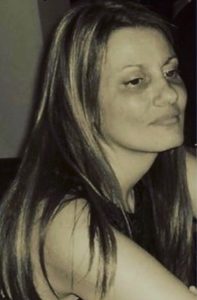Review by Ellen Pober Rittberg
More than Moon
by Jennifer Juneau
In A Rose Press, 2020
More Than Moon, Jennifer Juneau’s recently published full-length book of poetry from Is A Rose Press, crackles with smart imagery and insights that delight. There is much in the way of assessment of herself and others, but there is far more than that. Laced throughout her observations are deft and striking imagery, clear-eyed wisdom, and arch wit.
The second poem in the collection begins with a childhood memory. In “Postmodernism,” she mines what appears to be her memory of being a fearful four-year-old waking her mother up each night at three a.m. Beginning with a simple declaratory sentence, “There is a lot to ponder,” she launches into a series of questions beginning with “what if rain memorizes my address/ and becomes my walls and ceilings?” and then flips what might be the reader’s logical expectation that the girl somehow buys into the prince-as-savior mythos. But no. She searches a succession of empty rooms for “the prince’s lullaby” only to wake up “in a conformation solid as quenched thirst.”
Laced throughout her observations are deft and striking imagery, clear-eyed wisdom, and arch wit.
Many of Juneau’s titles key us in to what would appear to be one thing and then the poem subtly shifts gears, in a good way. The poem “Cleaning House” is not about house-cleaning or order as such but is about a domestic relationship gone off the rails. A short observational poem, “Conditioning,” thoroughly flips expectations. The poet happens upon German graffiti on a bench while watching her four-year-old child in a playground. The poem ends with the affecting lines “his heart is snug within its chamber/ not yet broken by that kind of love” and is a meditation on innocence.
Juneau mines relationships with men or a man at a point in time when the relationship that once was satisfactory or better no longer is. Sometimes her tone is brash, and often it is leavened with humor, as in her poem “Distance Lends Enchantment”: “as for my heart, that sump/ brimming with sodden love/ I’ll teach it other angles and if all else fails/ I’ll teach it how to swim.”
Juneau is masterful (or should I say, ms.-terful?) at describing specific moments and sensations as they relate to lovers.
When writing about failed or failing love, Juneau has a special knack for the apt phrase and in sharing her after-the-fact knowledge, thereby turning her understanding of the sensations and emotions into far more than standard-issue post-mortems. In “Tell Tale Heart,” she describes love as “unlatching the shutters of the heart guard.” In “The Past,” she describes a relationship that seems close to its conclusion as “it kept returning to our bed./ Even when we realized discord was here to stay, we acted surprised” and ends with “it settled in with us like a bad habit.”
Juneau is masterful (or should I say, ms.-terful?) at describing specific moments and sensations as they relate to lovers. In “Flower” she asks, “After a lover’s leave-taking, why did the mood/ of an empty room grow cold/ under the satellite of your scent?” and crescendos into “If you’ve never heard the melodious urgency/ of a woman’s notes rise/ and fall/ close to her lover’s ear, then how/ can you understand my petal-slim keening?”
When she sees someone who either is a past lover in the grocery aisle of a store or a dead ringer for him, she scurries away, her two children in tow, and when asked by her “curious husband” what she found she answers, “‘Nothing,’ I said, Except for what I left behind. Then changed the subject.”
Her imagery is sharp and original and tumbles forth in graceful waves. In “At an October Window,” she announces, “I will/ abide until the sky finds itself drunk/ in sable and the tide/ rises with a different fuse.” In the poem “In a Stone Room,” she declares, “In a stone room, cold and tomb-like/ I’ll listen to the gabble of sandpiper tongues” and “my soul took the shape of a hurricane” and ends with “in a stone room./ The gelid world where stones remain.” In “Symphony of Myself,” she describes her shift in mood as “comes a generosity in my state-of-the-art precinct of flux.” Her adjectives work like nobody’s business. In “The Past,” she describes the Alps as “the redolent hem of forest pine.”
Her formal poems are graceful without showing off the craft. In her smartly titled poem “When Conversation Fails”—how’s that for another ironic title?—she asks, “—but what would it take/ to learn your brain? I’ve entered your world devout/ to make this more than just a tumble/ in the blind wires of midnight.” She can also do surrealism well, for example, when she describes “the frayed maid sucking up to the moon.”
In her sonnet “Then It Came to Me,” she describes “… we picnicked by the lake,/ stale wine and an aging cake/ between us” and ends with “My mistake. Trying to solve problems too thick/ for formulas, a permanent failure at arithmetic.”
Her poems referencing great literature crackle with contemporary gusto and assume just the right tone. In “I Have Always Depended on the Kindness of Strangers,” she assumes the mantle of Tennessee Williams’ Blanche DuBois, and, addressing her sister, she declares in a bold opening: “Sister from a vague past/ I’ve come back farther than that.” She continues to recount her past, describing herself as “a revolver/ loaded with rhinestones, poems a dead boy wrote.”
And lastly, whenever I think my vocabulary is adequate to the task of writing poetry, Juneau sends me scurrying to my iPhone to google the words, what is the definition of sublunary, highbinder, susurrant, algid, hyperopic, and fuliginous.
 ELLEN POBER RITTBERG (Twitter Ellen_rittberg and www.ellenpoberrittberg.com) is an author, playwright, essayist, and poet. Her two humorous how-to books are 35 Things Your Teen Won’t Tell You, So I Will (Turner Publishing), about how to not to go bonkers, and her upcoming book about caring for her elderly mom which will be self-published on Amazon shortly. Her plays Sci Fi and Sabbath Elevator have been performed over the past two years live and on zoom. Her full-length book of poetry, He is Walking Wider, is scheduled for publication by Kelsay Books next year.
ELLEN POBER RITTBERG (Twitter Ellen_rittberg and www.ellenpoberrittberg.com) is an author, playwright, essayist, and poet. Her two humorous how-to books are 35 Things Your Teen Won’t Tell You, So I Will (Turner Publishing), about how to not to go bonkers, and her upcoming book about caring for her elderly mom which will be self-published on Amazon shortly. Her plays Sci Fi and Sabbath Elevator have been performed over the past two years live and on zoom. Her full-length book of poetry, He is Walking Wider, is scheduled for publication by Kelsay Books next year.
 JENNIFER JUNEAU is the author of the novel UberChef USA (Spork Press, 2019). Her work has been nominated for the Pushcart Prize, The Million Writers Award, and a Sundress Best of the Net. She lives in New York City, where she is active in poetry readings. She has featured at such venues as KGB Bar, La MaMa Experimental Theatre, New York Public Library, Parkside Lounge, Pete’s Candy Store, and Zinc Bar.
JENNIFER JUNEAU is the author of the novel UberChef USA (Spork Press, 2019). Her work has been nominated for the Pushcart Prize, The Million Writers Award, and a Sundress Best of the Net. She lives in New York City, where she is active in poetry readings. She has featured at such venues as KGB Bar, La MaMa Experimental Theatre, New York Public Library, Parkside Lounge, Pete’s Candy Store, and Zinc Bar.

